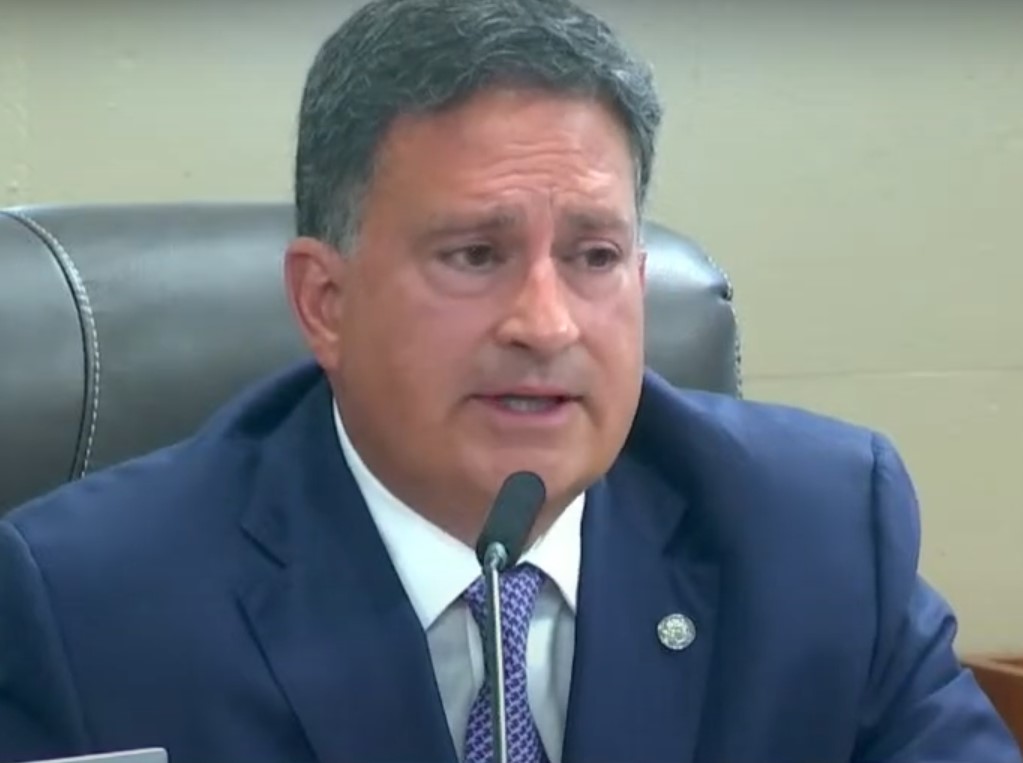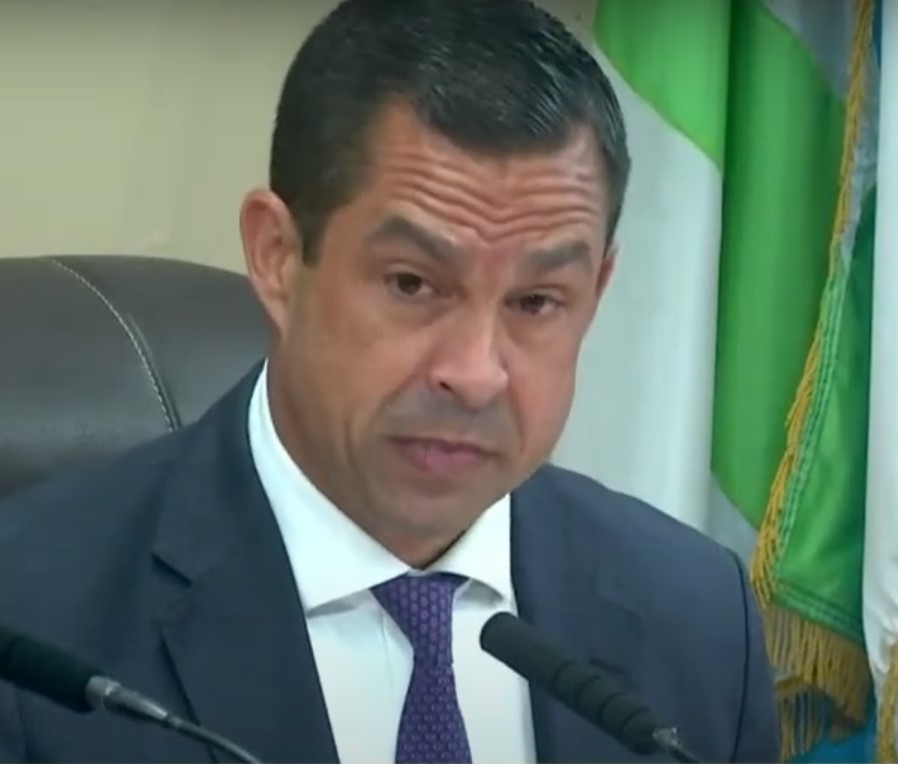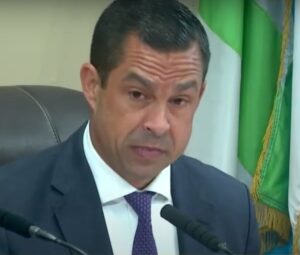The first meeting of Coral Gables’ newly reconfigured City Commission, held May 6, offered more than a glimpse into the city’s near-term legislative priorities. It provided a clear answer to a question that had loomed since the April elections: What would Mayor Vince Lago do with a working majority?
The answer came swiftly—and in the form of an aggressive agenda that reversed old decisions, revived previously stalled proposals, and signaled a new era of mayoral consolidation at City Hall.
Return to control
Mayor Lago, backed by Vice Mayor Rhonda Anderson and for now newly elected Commissioner Richard Lara wasted no time capitalizing on the political shift. With Commissioner Melissa Castro absent due to surgery and Commissioner Ariel Fernandez casting occasional dissenting votes, the Lago-led bloc moved in lockstep through a docket that would have been rejected just weeks earlier.
The symbolic and substantive centerpiece was the rollback of commissioner pay raises, a move loaded with political messaging. Since 2023, those raises had become a flashpoint for criticism, fueling perceptions of entitlement and detachment within City Hall. With his majority secured, Lago seized the opportunity to reframe the debate—not just as a matter of policy, but of public trust.
While the commission ultimately rejected a $1 symbolic salary proposal in favor of returning to pre-raise levels, the debate itself functioned as a kind of political theater. Lago cast the 2023 vote as a moment of disrespect by his then-governors, naming Fernandez, Castro, and former Commissioner Kirk Menendez. In doing so, he drew a bright line between past and present—between those he saw as out of step with public sentiment and those now aligned with what he described as the will of the voters.
Fernandez, for his part, supported the rollback but not the $1 figure, calling it “novel but not what residents are asking for.” His comment quietly pointed to the deeper divide on the commission—between making symbolic moves to please the public and taking practical steps to govern effectively.

Commissioner Richard Lara.
Lara’s quiet but clear alignment
One of the clearest signs of political realignment came not through a speech or headline vote, but through Commissioner Lara’s quiet consistency. In his first meeting since winning a closely watched runoff, Lara voted in lockstep with Lago and Anderson on every item—from the salary repeal and election date shift to public comment restrictions and budget cuts.
Though Lara kept his remarks brief, he conveyed a clear message: his alignment with the mayor’s agenda may not be provisional. When he did speak, as on the $1 salary proposal, he echoed Anderson’s sentiment—sympathetic in theory but ultimately focused on preserving accessibility for future candidates. The tone was measured, deferential, and purposeful.
He also announced weekly office hours—by appointment only—marking a controlled, more curated approach to constituent access that stood in quiet contrast to Commissioner Castro’s broader, and more scrutinized, public outreach efforts. In tone and posture, Lara appeared to be a commissioner more interested in establishing reliability than making an early rhetorical splash. His debut served not just to cast votes, but to form a durable governing bloc.
Institutional reform or political strategy?
The pay issue was only the beginning. The commission advanced a first reading of an ordinance to shift city elections from April to November—a change with far-reaching implications for civic engagement and campaign dynamics.
Lago pitched the shift as a response to residents’ concerns about low turnout and cost inefficiencies, a claim bolstered by his campaign-season door-to-door outreach. But critics like Fernandez questioned whether such a consequential change should be made without a binding public referendum.
The mayor’s offer of a nonbinding resolution to measure public sentiment may serve as a political hedge, but it also leaves the decision squarely in the hands of the commission he and his allies now dominate. The move fits a broader pattern in local governance: using procedural tools to solidify political momentum, often under the banner of reform.
Similar logic applied to the passage of ordinances requiring a supermajority to spend from the city’s general fund reserves and proposing charter changes including a new Inspector General role. In each case, proposals that had previously struggled to gain traction now found quick passage—raising questions about whether the commission is recalibrating city oversight mechanisms or simply codifying the preferences of its majority.
Shifting power dynamics—and process
One of the quieter yet more telling developments came in the form of process changes. The commission moved to restrict public comment to the start of meetings, rather than allowing input on each agenda item. Though justified as a streamlining measure, the change risks reducing public influence over deliberations—particularly in a city where civic engagement has long been robust.
Maria Cruz and Jackson “Rip” Holmes, ardent critics of the mayor, voiced concern but found themselves speaking to a commission no longer inclined to be swayed. The new majority’s posture was not combative, but it was firm: the agenda was moving forward, and procedural friction would not delay it.
Even small moments underscored the shift. The decision to halve commissioners’ expenses—to $5,000 annually per member—was cast in terms of fiscal discipline but came with the unmistakable flavor of political rebuke.
What this reveals
The commission’s actions this week went beyond routine policymaking. They marked the start of a new phase in Coral Gables politics—one where Mayor Lago, backed by a reliable majority, is moving quickly to reshape the city’s agenda and structure.
At its core, this isn’t just about reversing raises or changing election dates. It’s about who gets to set the terms of public service: officials who say they were elected to act boldly, or those who believe the public’s voice should be measured through broader input and process.
How this plays out may depend on whether Commissioners Fernandez and Castro—when she returns—can persuade Lara. But it will depend even more on how residents respond. The early moves may be framed as reform, but they also reveal priorities and power lines.
The May 6 meeting wasn’t just procedural. It was a signal of where this commission is headed—and whether Coral Gables voters will follow or eventually push back.





